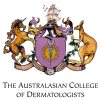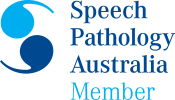When visiting a speech pathologist for the first time, as you might guess, one of the first questions your clinician will ask you is what the reason for the visit is. If you are seeing a dysphagia specialist, then your concern will most likely be due to difficulties swallowing. Swallowing difficulties can occur with food or solids, drinks or liquids and even with saliva. These difficulties can arise due to a number of reasons such as physiological changes to the throat, stroke, Parkinson’s disease and other neurological aetiologies. Once you have established what your concerns are, there are a few key components that the assessment is composed of, including:
Case History
This includes any background history such as the initial occurrence of the swallowing concern, any previous illnesses, injuries or episodes in hospital that may serve to explain the reason for your swallowing concerns and help to determine what strategies are used to tackle the issues. Any previous investigations such as modified barium swallow or functional X-ray while you swallow will also be discussed and help guide treatment. Your current diet should also be discussed to determine a baseline from where the investigation will begin.
Oromotor Examination
This is often the first part of the physical examination where you will be asked to copy an array of facial movements such as poking out your tongue and spreading your lips to determine the strength, speed and coordination of the muscles of the head and neck. Any deviations noted in these movements can help pre-empt any possible swallowing difficulties and determine the direction of swallow management.
Food and Fluid Trial
During this component, you will be asked to eat and drink a range of food and drinks. While you are swallowing, your speech pathologist will be feeling and listening out for signs that food or fluid may be going down the wrong way into your lungs. It is essential to ensure this does not happen, as food or fluid in the lungs can cause Aspiration Pneumonia which can be life threatening.
After the assessment has been completed, your speech pathologist will provide you with the results, which will include a diagnosis and education about swallowing and the treatment programs available. Each diagnosis is different and based on the individuals presenting symptoms, which guide the type of therapy provided. For this reason, it is essential that your swallowing be assessed properly by a qualified speech pathologist prior to commencing therapy.
Contact us for results focused on speech therapy
This article was written by our Speech Pathologist Ashleigh Fattah who is a Speech Pathology Australia member. If you have speech pathology related questions, make an appointment. We‘ll provide you with simple and effective therapy targeted to your concerns. Contact us today.
The post What to expect in an initial adult swallowing assessment appeared first on ENT Wellbeing Sydney.










